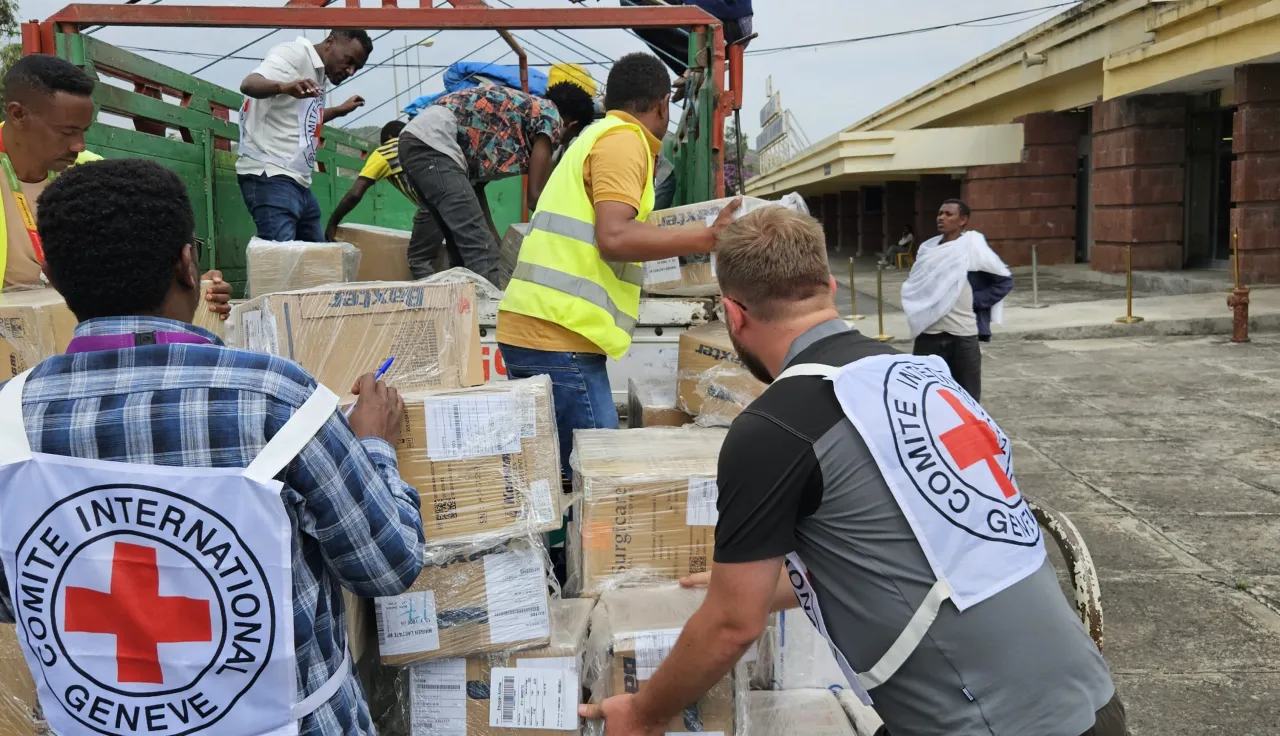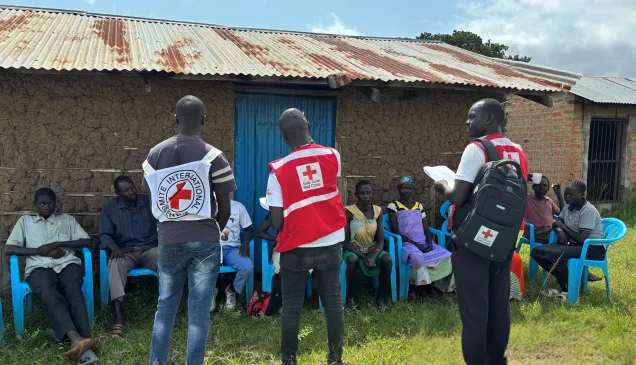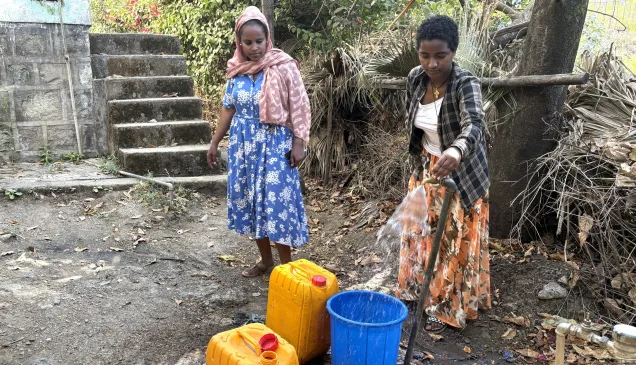Amhara Region has experienced a conflict between government forces and the Amhara Fano armed group since August 2023. The situation in the eastern part of Amhara deteriorated further at the end of September, when a sudden escalation of hostilities in the North Wollo zone led to large numbers of casualties, captured fighters and other severe humanitarian consequences.
In response, the ICRC rapidly deployed two teams in and around Lalibela and Woldiya towns over the past six days to deliver medicines and supplies to six health facilities, including enough surgical material to treat 250 severely wounded people. On 8 October, the ICRC evacuated 16 critically injured people in urgent need of medical care. The soldiers were handed to the ICRC by the Amhara Fano across the front line and taken to Woldiya town, where they were transferred to government forces. On 9 October, staff also visited detainees held by Amhara Fano in North Wollo.
“Many people have been killed or wounded in North Wollo in recent days,” the ICRC’s team leader in Lalibela, Martin Thalmann, said after returning from the hard-hit areas of Kulmesk and Muja. “Staff at local health centres cared for wounded soldiers and civilians with limited resources. Sixteen critically injured detainees needed urgent evacuation for surgical treatment, and for five of them it was a matter of hours to save their lives.”
The ICRC also provided initial medical assistance to the health centres in Kulmesk and Muja, and plans to bring in more during the coming days, as they are facing acute shortages of supplies.
The ICRC visited captured soldiers held by Amhara Fano to assess their conditions of detention and the treatment they receive, and to reestablish contacts with family members. This visit was carried out in a remote location of the North Wollo zone by six ICRC delegates, according to the organization’s long-standing modalities for detention visits worldwide.
Given the impact of hostilities in the area, the ICRC also donated surgical and other medical supplies and medicines to Woldiya’s hospital, and to staff from the health facilities in Kobo and Tekulashe further north. A similar donation is planned for Lalibela’s hospital.
“Communities in the most affected areas shouldn’t be forgotten,” said Thalmann. “Due to the lack of safety, there is little access to health care, education or transport for people in more remote areas. In the areas most affected by the recent clashes, people are unable to go to markets and harvest their fields. Some have fled to other villages.”
The parties to the armed conflict in Amhara must comply with international humanitarian law. These rules protect persons who are not, or no longer, participating in hostilities. This includes civilians and people who are captured or wounded, be they civilians or fighters.
The ICRC will continue its emergency response in North Wollo and other areas in Amhara as required. It plans to increase its support at the Woldiya hospital by providing physical rehabilitation for severely wounded patients to assist in their recovery.
According to its mandate and in line with international humanitarian law (IHL), the ICRC underlined to both parties its readiness to serve as neutral intermediary in future detainee releases or other operations across front lines.
For more information, please contact:
Zewdu Ayalew, ICRC Ethiopia, zayalew@icrc.org, +251 944 101 700,
Mateo Jaramillo Ortega, ICRC Nairobi, mjaramillo@icrc.org, +254 716 897 265




